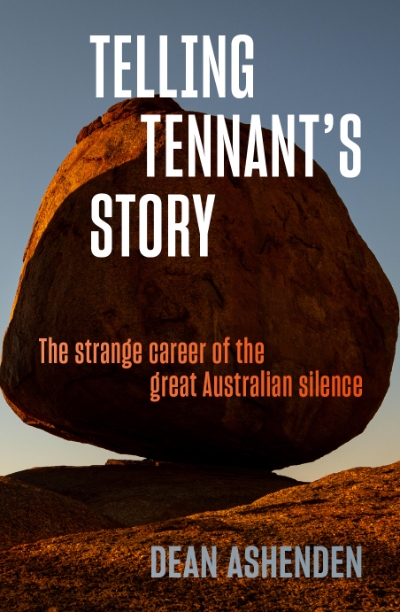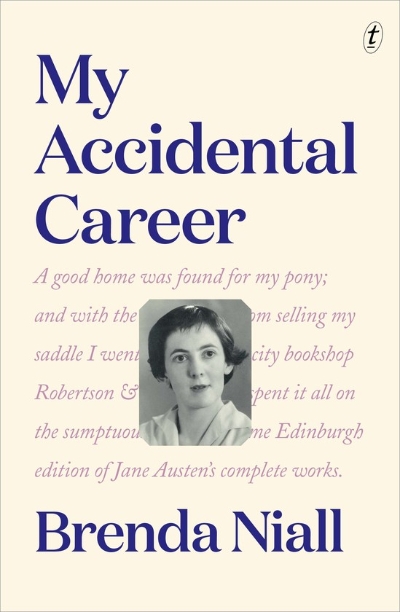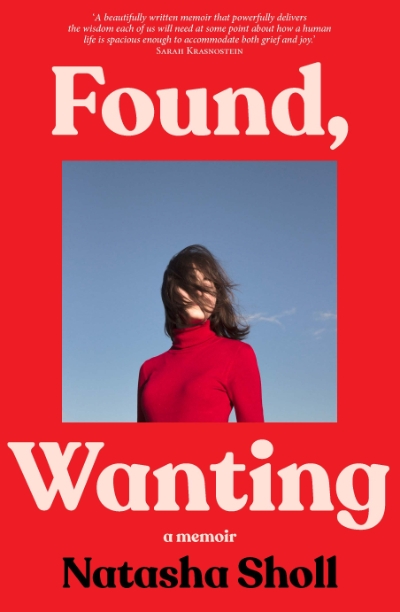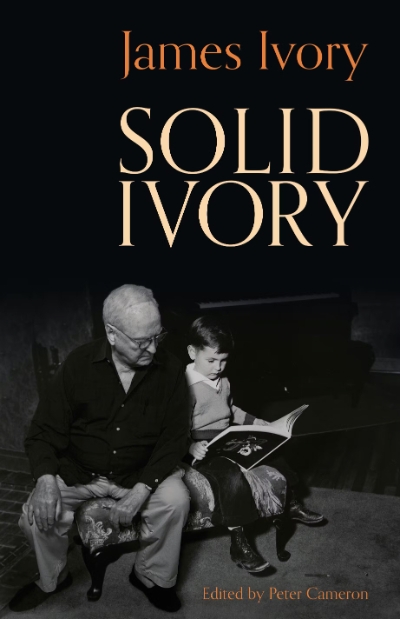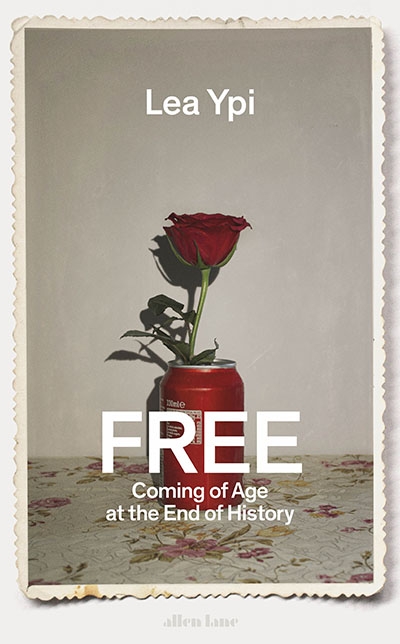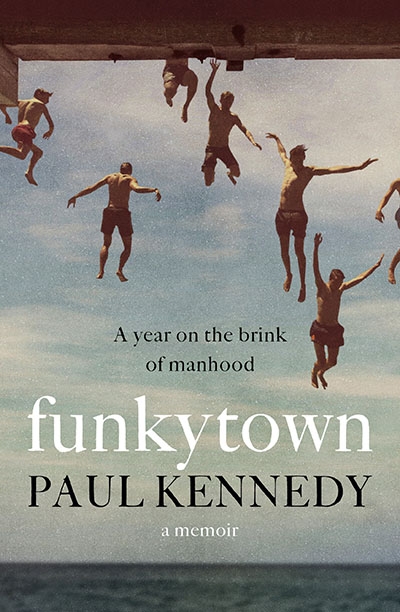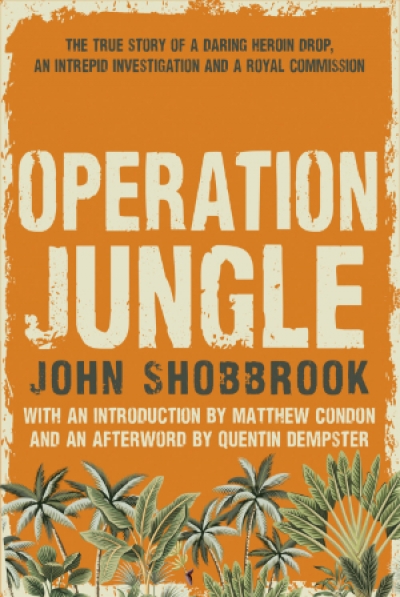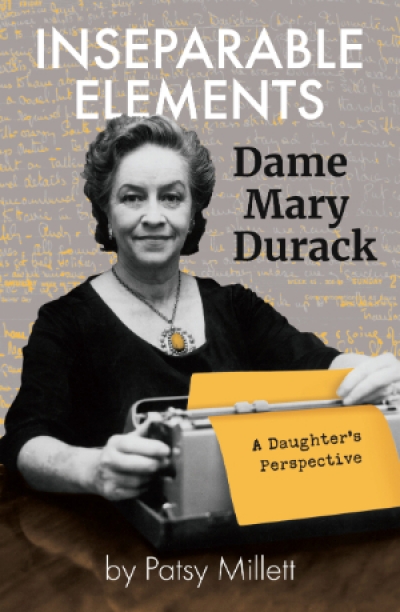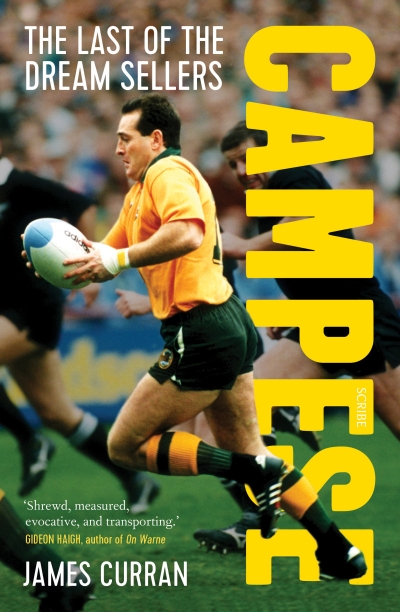Memoir
Telling Tennant’s Story: The strange career of the great Australian silence by Dean Ashenden
In Telling Tennant’s Story, Dean Ashenden gives a lucid, succinct, eminently readable account of the reasons why Australia as a nation continues to struggle with how to acknowledge and move beyond its past. Travelling north to visit Tennant Creek for the first time since leaving it as a boy in 1955, Ashenden is provoked to question the absence of shared histories on the monuments and tourist information boards along the route. Mostly, the signs record pioneer history, from which the Indigenous people are absent. When the Indigenous story is invoked, it records traditional practices and does not mention white people. ‘How did they get from then to now?’ he muses. ‘Just don’t mention the war.’
... (read more)It’s always interesting to see biographers decide to turn the spotlight upon themselves, and to ask why. Will it be another case of ‘now it’s my turn’? The need to confess, even to enter into the Land of Too Much Information?
... (read more)We all seem to be thinking about grief lately. As Covid keeps many of us away from loved ones and people who are dying or have just expired, how we process death has received a renewed focus. The number of memoirs and guides and stories about grief and loss that have been published in the past two years – over two hundred – is staggering. It is a challenge to write about grief. Every society on earth has its own forms and rituals around grieving, its own texts on what grieving is like. Trying to find something new or original to say is daunting. What we are left with are our own words, our own terrible experiences to put down upon the page.
... (read more)‘Call me Ismail,’ it could plausibly begin: a screenplay not of Herman Melville’s novel Moby-Dick but of the real-life relationship between two filmmakers renowned for their adaptations of a string of other classic novels. Ismail Merchant first met James Ivory on the steps of the Indian consulate in Manhattan in 1961. ‘Call me by your name,’ the Ivory character might wittily retort in this imagined biopic. That, of course, was to be the title of the film scripted by Ivory nearly a decade and a half after Merchant’s death in 2005, but it captures something of the symbiotic nature of their partnership.
... (read more)‘Freedom’ is a word that slips off the tongue easily. As the moral philosopher Alasdair MacIntyre notes in his essay ‘Freedom and Revolution’: ‘No word has been more cheapened by misuse. No word has experienced more of the tortuous redefinitions of politicians.’ In the essay, MacIntyre turns to Karl Marx to recover the idea that human beings are essentially free. With the same source of inspiration, but through a poignant and often funny memoir of coming to age in state-socialist Albania, Lea Ypi’s Free attempts the same task.
... (read more)Seasoned ABC journalist and presenter Paul Kennedy, also known as ‘PK’, has over the years cultivated an affable, equable public persona. For regular viewers of the ABC’s News Breakfast program, Kennedy is the kind of person with whom one would like to have a drink; to pore over sporting results or the tumult of living through a pandemic. It is a shock, then, to discover that Kennedy was not always this picture of fatherly composure but once an insecure, frustrated, and troubled seventeen-year-old, trapped within the confusing void between boyhood and manhood.
... (read more)True crime books sell. Few of them, however, are as well written as this book. John Shobbrook’s Operation Jungle is one of the most entertaining and gripping memoirs of law enforcement in Queensland that has been published by the University of Queensland Press. It is set during Joh Bjelke-Petersen’s controversial premiership (1968–87). Nostalgically recalling a time before the internet and mobile phones made the world a smaller place, John Shobbrook’s stories of solid detective work and police corruption are persuasive and well told.
... (read more)Inseparable Elements: Dame Mary Durack, a daughter’s perspective by Patsy Millett
Another book about a mother by a daughter, I thought when I saw this one, summoning to mind Biff Ward’s In My Mother’s Hands (2014), Kate Grenville’s One Life (2015), and Nadia Wheatley’s Her Mother’s Daughter (2018). But while each of those books presents an impressive woman cramped – sometimes tragically so – by her postwar circumstances, in this case we have a subject who was nothing short of a national treasure.
... (read more)Campese: The last of the dream sellers by James Curran
The Australian team that won the 1991 Rugby World Cup must rank as one of our most charismatic national sport teams in modern times. The side that defeated England in the final at London’s Twickenham Stadium included several players now regarded as undisputed greats of global rugby: John Eales, Tim Horan, Jason Little, Michael Lynagh, and captain Nick Farr-Jones. There were also stirring ‘underdog’ stories: players who seemed to rise from nowhere that year to play starring roles, such as fullback Marty Roebuck and wing Rob Egerton. In Tonga-born flanker Viliami Ofahengaue, there was an early hint of the changing demographic of élite rugby players in Australia.
... (read more)The title of Miriam Margolyes’s memoir, This Much Is True, strikes a declamatory note, well suited to the octogenarian actor whose greatest asset is her voice, with its diverse accents, timbres, and moods. It also proclaims that we are not going to have the wool pulled over our eyes, or to be frustrated by authorial modesty, tact, or political correctness.
... (read more)

